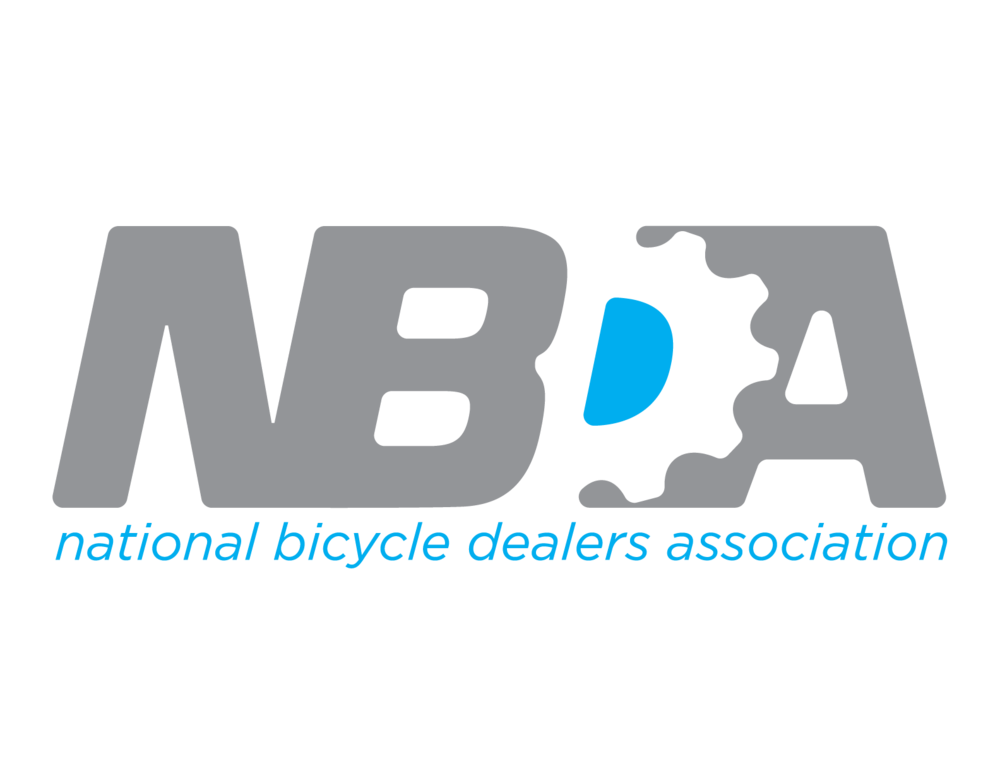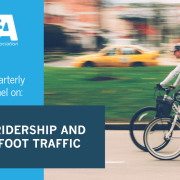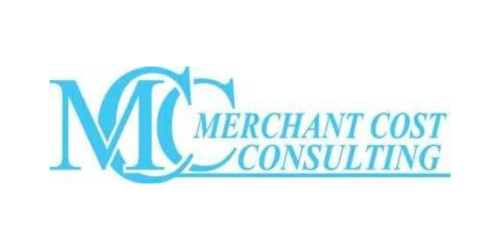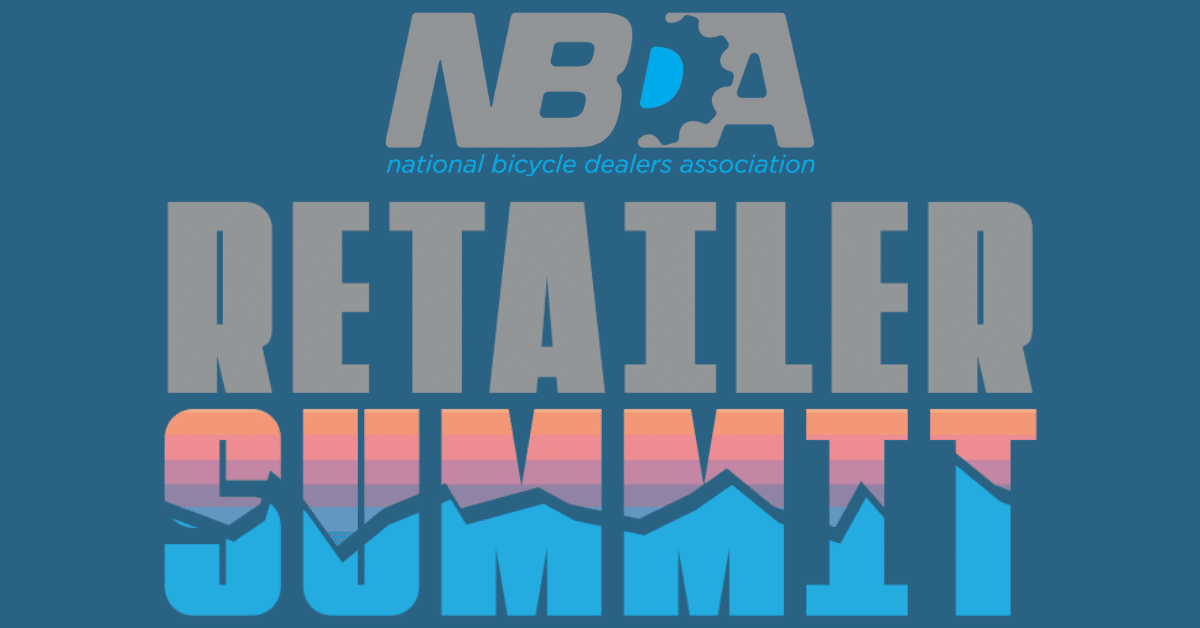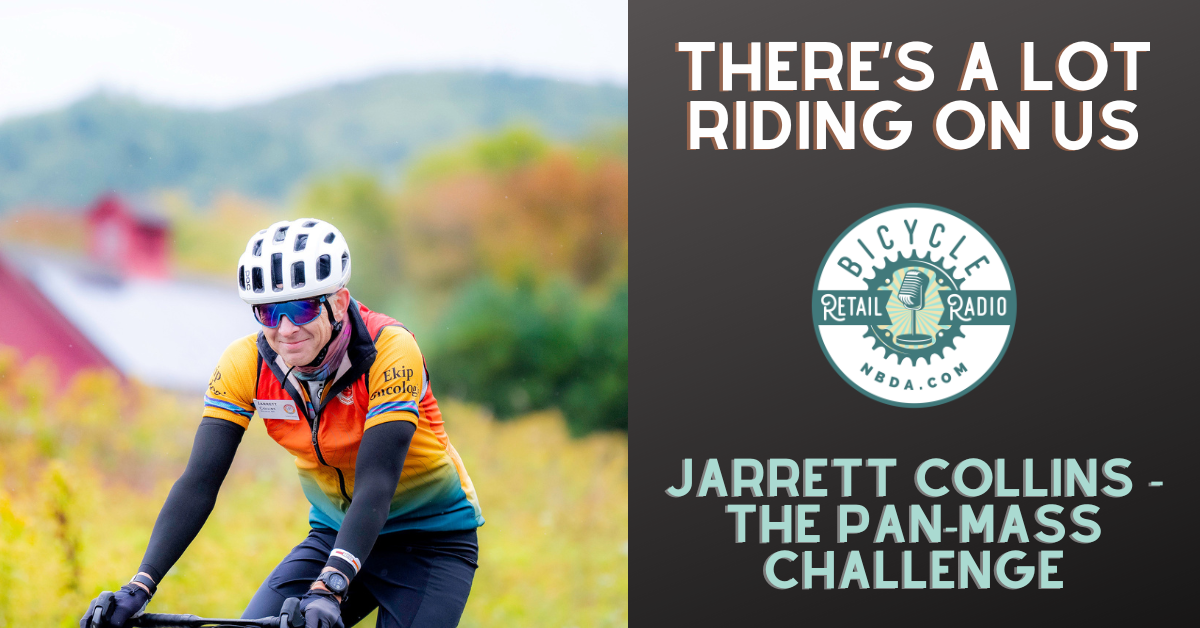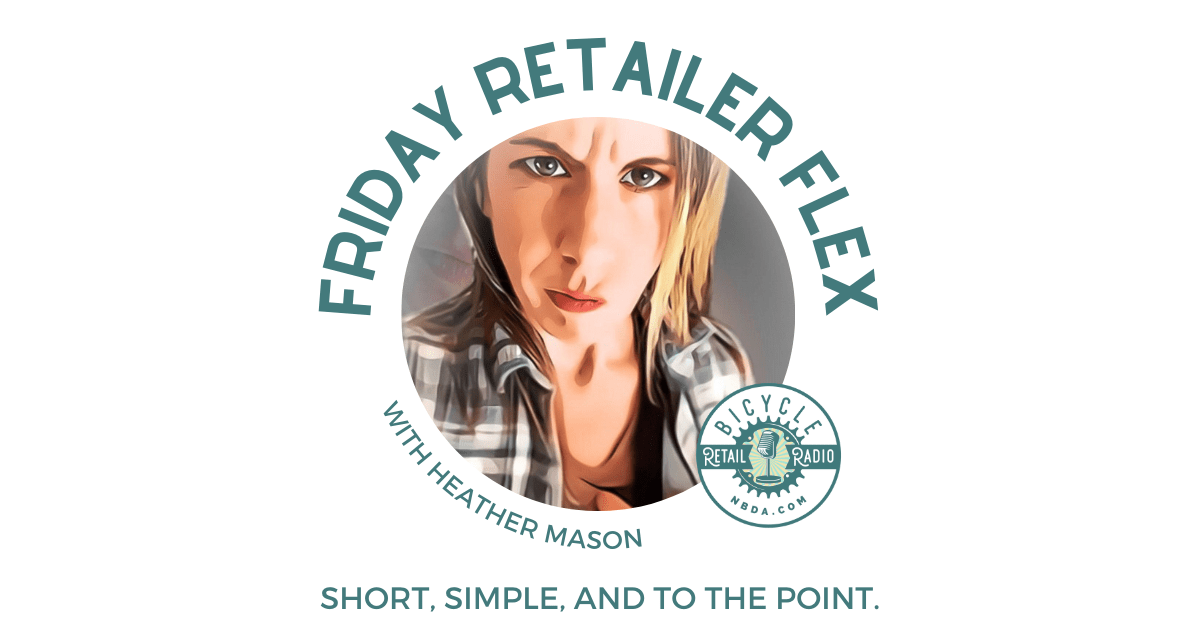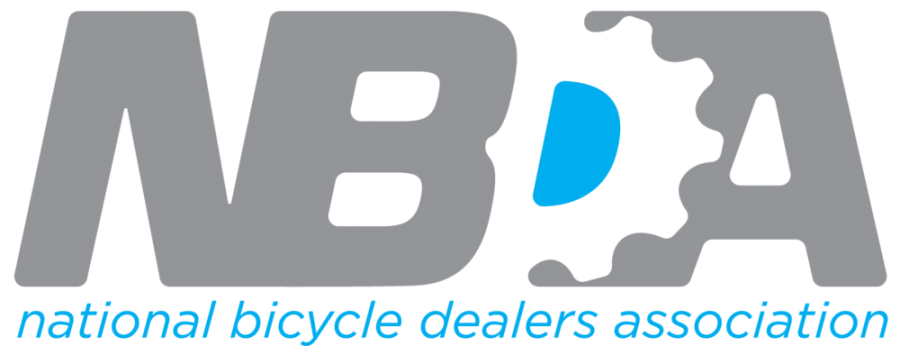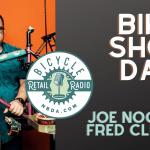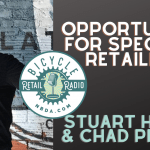We Need Retailers
[fusion_builder_container hundred_percent=”no” equal_height_columns=”no” menu_anchor=”” hide_on_mobile=”small-visibility,medium-visibility,large-visibility” class=”” id=”” background_color=”” background_image=”” background_position=”center center” background_repeat=”no-repeat” fade=”no” background_parallax=”none” parallax_speed=”0.3″ video_mp4=”” video_webm=”” video_ogv=”” video_url=”” video_aspect_ratio=”16:9″ video_loop=”yes” video_mute=”yes” overlay_color=”” video_preview_image=”” border_color=”” border_style=”solid” padding_top=”” padding_bottom=”” padding_left=”” padding_right=”” type=”legacy”][fusion_builder_row][fusion_builder_column type=”1_1″ layout=”1_1″ align_self=”auto” content_layout=”column” align_content=”flex-start” content_wrap=”wrap” spacing=”” center_content=”no” link=”” target=”_self” min_height=”” hide_on_mobile=”small-visibility,medium-visibility,large-visibility” sticky_display=”normal,sticky” class=”” id=”” type_medium=”” type_small=”” order_medium=”0″ order_small=”0″ dimension_spacing_medium=”” dimension_spacing_small=”” dimension_spacing=”” dimension_margin_medium=”” dimension_margin_small=”” margin_top=”” margin_bottom=”” padding_medium=”” padding_small=”” padding_top=”” padding_right=”” padding_bottom=”” padding_left=”” hover_type=”none” border_sizes=”” border_color=”” border_style=”solid” border_radius=”” box_shadow=”no” dimension_box_shadow=”” box_shadow_blur=”0″ box_shadow_spread=”0″ box_shadow_color=”” box_shadow_style=”” background_type=”single” gradient_start_color=”” gradient_end_color=”” gradient_start_position=”0″ gradient_end_position=”100″ gradient_type=”linear” radial_direction=”center center” linear_angle=”180″ background_color=”” background_image=”” background_image_id=”” background_position=”left top” background_repeat=”no-repeat” background_blend_mode=”none” animation_type=”” animation_direction=”left” animation_speed=”0.3″ animation_offset=”” filter_type=”regular” filter_hue=”0″ filter_saturation=”100″ filter_brightness=”100″ filter_contrast=”100″ filter_invert=”0″ filter_sepia=”0″ filter_opacity=”100″ filter_blur=”0″ filter_hue_hover=”0″ filter_saturation_hover=”100″ filter_brightness_hover=”100″ filter_contrast_hover=”100″ filter_invert_hover=”0″ filter_sepia_hover=”0″ filter_opacity_hover=”100″ filter_blur_hover=”0″ last=”true” border_position=”all” first=”true” type=”1_1″][fusion_imageframe image_id=”21627|medium” max_width=”” sticky_max_width=”” style_type=”” blur=”” stylecolor=”” hover_type=”none” bordersize=”” bordercolor=”” borderradius=”” align_medium=”none” align_small=”none” align=”center” margin_top=”” margin_right=”” margin_bottom=”” margin_left=”” lightbox=”no” gallery_id=”” lightbox_image=”” lightbox_image_id=”” alt=”Photo of Chris Cocalis holding a bike” link=”” linktarget=”_self” hide_on_mobile=”small-visibility,medium-visibility,large-visibility” sticky_display=”normal,sticky” class=”” id=”” animation_type=”” animation_direction=”left” animation_speed=”0.3″ animation_offset=”” filter_hue=”0″ filter_saturation=”100″ filter_brightness=”100″ filter_contrast=”100″ filter_invert=”0″ filter_sepia=”0″ filter_opacity=”100″ filter_blur=”0″ filter_hue_hover=”0″ filter_saturation_hover=”100″ filter_brightness_hover=”100″ filter_contrast_hover=”100″ filter_invert_hover=”0″ filter_sepia_hover=”0″ filter_opacity_hover=”100″ filter_blur_hover=”0″]https://nbda.com/wp-content/uploads/2020/08/Bicycle-retail-radio-12-900×471.png[/fusion_imageframe][fusion_code]PGRpdiBpZD0iYnV6enNwcm91dC1wbGF5ZXItMjI5NDk2MCI+PC9kaXY+CjxzY3JpcHQgc3JjPSJodHRwczovL3d3dy5idXp6c3Byb3V0LmNvbS80OTYwOTMvMjI5NDk2MC1pbmR1c3RyeS1pbnRlcnZpZXctd2UtbmVlZC1yZXRhaWxlcnMuanM/Y29udGFpbmVyX2lkPWJ1enpzcHJvdXQtcGxheWVyLTIyOTQ5NjAmcGxheWVyPXNtYWxsIiB0eXBlPSJ0ZXh0L2phdmFzY3JpcHQiIGNoYXJzZXQ9InV0Zi04Ij48L3NjcmlwdD4=[/fusion_code][/fusion_builder_column][fusion_builder_column type=”1_1″ layout=”1_1″ background_position=”left top” background_color=”” border_color=”” border_style=”solid” border_position=”all” spacing=”yes” background_image=”” background_repeat=”no-repeat” padding_top=”” padding_right=”” padding_bottom=”” padding_left=”” margin_top=”0px” margin_bottom=”0px” class=”” id=”” animation_type=”” animation_speed=”0.3″ animation_direction=”left” hide_on_mobile=”small-visibility,medium-visibility,large-visibility” center_content=”no” last=”true” min_height=”” hover_type=”none” link=”” border_sizes_top=”” border_sizes_bottom=”” border_sizes_left=”” border_sizes_right=”” first=”true” type=”1_1″][fusion_text columns=”” column_min_width=”” column_spacing=”” rule_style=”default” rule_size=”” rule_color=”” content_alignment_medium=”” content_alignment_small=”” content_alignment=”” hide_on_mobile=”small-visibility,medium-visibility,large-visibility” sticky_display=”normal,sticky” class=”” id=”” font_size=”” fusion_font_family_text_font=”” fusion_font_variant_text_font=”” line_height=”” letter_spacing=”” text_color=”” animation_type=”” animation_direction=”left” animation_speed=”0.3″ animation_offset=””]
We Need Retailers: Chris Cocalis, President and CEO of Pivot Cycles, joins Rod Judd, Membership and Development Director at People for Bikes, to talk about how he started in the bike industry and to get his take on the current state of the industry. Chris and Rod talk tariffs, retail, supplier behavior, and Chris gives his input on what he thinks the industry needs to be even more successful.
Support the show (https://nbda.com/articles/donation-form-pg511.htm#!form/Donate)
About Chris Cocalis
Hometown: Chicago, Illinois originally, but Phoenix, AZ for the last 31 years
What is your favorite model and why? President and CEO of Pivot Cycles, Chris Cocalis, the man who owns and rides every model Pivot makes picks the Switchblade as his current favorite bike “It’s super versatile. I can climb all day on it, but even more so, it kills it when descending,” he says. “I always feel like I have more than enough bike for the job. It’s just super fun.”
If he could ride his Switchblade anywhere on earth, it would be the Whole Enchilada in Moab, Utah. “It has a lot of everything I love, and you still wind up doing a ton of climbing,” says Chris. Other than a One Up 47T cog on the cassette, his bike is built with our standard XTR build and is “light enough that I don’t need to think about it.” He also built his Switchblade with a 160mm travel, 44mm offset fork – now standard equipment on all models because of the impressive boost in overall performance.
Rider and Bike Stats: Rider Height: 5’11”, Frame Size: Large, Handlebar Width: 760mm, Stem Length: 45mm, Saddle Height (center of the crank to the top of saddle): 29.375”
Favorite bike tool on the bench?
Hozan 4th hand. Not only is it great for pulling cables tight on dropper posts but it’s also the best tool for securing zip ties. Generally, I really like tools. I have a pretty awesome collection of personal tools.
[/fusion_text][/fusion_builder_column][/fusion_builder_row][/fusion_builder_container][fusion_builder_container type=”flex” hundred_percent=”no” hundred_percent_height=”no” min_height=”” hundred_percent_height_scroll=”no” align_content=”stretch” flex_align_items=”flex-start” flex_justify_content=”flex-start” flex_column_spacing=”” hundred_percent_height_center_content=”yes” equal_height_columns=”no” container_tag=”div” menu_anchor=”” hide_on_mobile=”small-visibility,medium-visibility,large-visibility” status=”published” publish_date=”” class=”” id=”” link_color=”” link_hover_color=”” border_sizes=”” border_sizes_top=”” border_sizes_right=”” border_sizes_bottom=”” border_sizes_left=”” border_color=”” border_style=”solid” spacing_medium=”” margin_top_medium=”” margin_bottom_medium=”” spacing_small=”” margin_top_small=”” margin_bottom_small=”” margin_top=”” margin_bottom=”” padding_dimensions_medium=”” padding_top_medium=”” padding_right_medium=”” padding_bottom_medium=”” padding_left_medium=”” padding_dimensions_small=”” padding_top_small=”” padding_right_small=”” padding_bottom_small=”” padding_left_small=”” padding_top=”” padding_right=”” padding_bottom=”” padding_left=”” box_shadow=”no” box_shadow_vertical=”” box_shadow_horizontal=”” box_shadow_blur=”0″ box_shadow_spread=”0″ box_shadow_color=”” box_shadow_style=”” z_index=”” overflow=”” gradient_start_color=”” gradient_end_color=”” gradient_start_position=”0″ gradient_end_position=”100″ gradient_type=”linear” radial_direction=”center center” linear_angle=”180″ background_color=”” background_image=”” background_position=”center center” background_repeat=”no-repeat” fade=”no” background_parallax=”none” enable_mobile=”no” parallax_speed=”0.3″ background_blend_mode=”none” video_mp4=”” video_webm=”” video_ogv=”” video_url=”” video_aspect_ratio=”16:9″ video_loop=”yes” video_mute=”yes” video_preview_image=”” absolute=”off” absolute_devices=”small,medium,large” sticky=”off” sticky_devices=”small-visibility,medium-visibility,large-visibility” sticky_background_color=”” sticky_height=”” sticky_offset=”” sticky_transition_offset=”0″ scroll_offset=”0″ animation_type=”” animation_direction=”left” animation_speed=”0.3″ animation_offset=”” filter_hue=”0″ filter_saturation=”100″ filter_brightness=”100″ filter_contrast=”100″ filter_invert=”0″ filter_sepia=”0″ filter_opacity=”100″ filter_blur=”0″ filter_hue_hover=”0″ filter_saturation_hover=”100″ filter_brightness_hover=”100″ filter_contrast_hover=”100″ filter_invert_hover=”0″ filter_sepia_hover=”0″ filter_opacity_hover=”100″ filter_blur_hover=”0″][fusion_builder_row][fusion_builder_column type=”1_1″ layout=”1_1″ align_self=”auto” content_layout=”column” align_content=”flex-start” content_wrap=”wrap” spacing=”” center_content=”no” link=”” target=”_self” min_height=”” hide_on_mobile=”small-visibility,medium-visibility,large-visibility” sticky_display=”normal,sticky” class=”” id=”” type_medium=”” type_small=”” order_medium=”0″ order_small=”0″ dimension_spacing_medium=”” dimension_spacing_small=”” dimension_spacing=”” dimension_margin_medium=”” dimension_margin_small=”” margin_top=”” margin_bottom=”” padding_medium=”” padding_small=”” padding_top=”” padding_right=”” padding_bottom=”” padding_left=”” hover_type=”none” border_sizes=”” border_color=”” border_style=”solid” border_radius=”” box_shadow=”no” dimension_box_shadow=”” box_shadow_blur=”0″ box_shadow_spread=”0″ box_shadow_color=”” box_shadow_style=”” background_type=”single” gradient_start_color=”” gradient_end_color=”” gradient_start_position=”0″ gradient_end_position=”100″ gradient_type=”linear” radial_direction=”center center” linear_angle=”180″ background_color=”” background_image=”” background_image_id=”” background_position=”left top” background_repeat=”no-repeat” background_blend_mode=”none” animation_type=”” animation_direction=”left” animation_speed=”0.3″ animation_offset=”” filter_type=”regular” filter_hue=”0″ filter_saturation=”100″ filter_brightness=”100″ filter_contrast=”100″ filter_invert=”0″ filter_sepia=”0″ filter_opacity=”100″ filter_blur=”0″ filter_hue_hover=”0″ filter_saturation_hover=”100″ filter_brightness_hover=”100″ filter_contrast_hover=”100″ filter_invert_hover=”0″ filter_sepia_hover=”0″ filter_opacity_hover=”100″ filter_blur_hover=”0″ last=”true” border_position=”all” first=”true” type=”1_1″][fusion_accordion type=”” boxed_mode=”” border_size=”1″ border_color=”” background_color=”” hover_color=”” divider_line=”” title_font_size=”20px” icon_size=”” icon_color=”” icon_boxed_mode=”” icon_box_color=”” icon_alignment=”” toggle_hover_accent_color=”” hide_on_mobile=”small-visibility,medium-visibility,large-visibility” class=”” id=””][fusion_toggle title=”Episode Transcript” open=”no” class=”” id=””]
Episode 13 – Bicycle Retail Radio
Tue, 8/18 9:38AM • 31:38
SUMMARY KEYWORDS
bikes, industry, people, bicycle, business, Titus, retailers, pivot, mountain bike, bike shops, dealers, products, building, suppliers, frames, selling, shop, big, Chris, early
SPEAKERS
Rod Judd, Brandee Lepak, Kent Cranford, Chris Cocalis
Brandee Lepak 00:02
You are listening to Bicycle Retail Radio brought to you by the National Bicycle Dealers Association.
Rod Judd 00:15
Welcome to bicycle retail radio, brought to you by the National Bicycle Dealers Association. I’m rod Judd the membership and development director of people for bikes. And it’s my privilege today to talk with Chris Collis, the CEO of pivot cycles. How are you, Chris? Good, how are you? Good, good. So Chris has been many things to the industry over a career spanning three decades now and is experienced as a Raisa a retail or a frame builder. And a business leader gives him a fairly rare perspective I think we can all learn from today. So with that, I’m going to get started with some questions for you, Chris. All right. Great. So you started as a BMX racer in high school and moved on to some of the earliest mountain bikes Right, how did it all begin for you as a rider and a bike shop employee
Chris Cocalis 01:04
riding BMX when I was nine and also kind of became the shop Grom at that time, so pretty much been involved or at or managing a bike store, really all my life up until the start of Titus in the late 80s, early 90s. But uh, yeah, I raced BMX early 80s until 1987. I will continue to race but I discovered mountain bikes. At that point, I came out to Arizona to go to ASU. And the guys at the shops I started working at were all mountain bikers and got hooked instantly cool, but I started there as a mechanic but had managed like shops and service areas and basically been involved in BMX and started mountain bikes from early on. Right.
Rod Judd 01:51
And so when you started building those early, those early frames, you know, what was different about what you were doing versus what was on the market. In the mountain bike space at that time,
Chris Cocalis 02:02
well, I was really intrigued by some of the early elevated chainstay bikes. So look, Richard Cunningham had Mantis and then he also designed the mashiki alien. And I had a picture of the CG alien hanging up in my dorm room in my first year of college and I met a gentleman who taught me how to brace frames and kind of had a little backyard business called sun Eagle bicycle works. And we were building we built elevated chainstay frames and in 1988 1989 timeframe actually had a test in mountain bike action in 1988, alongside the several different mantises and the Michigan aliens called bikes of the future, and it’s pretty cool to be a part of that. But although cool, I didn’t know anything about welding aluminum, it was steel bike and the idea of elevated chainstays was super cool, but we really couldn’t build a bike that was stiff enough at the time. with tin steel tubes that kind of moved into me playing around with more conventional frames, and then the starting Titus.
Rod Judd 03:09
Right? So talk about those early years, you know, in the 90s, when you did sound Titus, that was really a boom period for mountain biking, right? So the whole category, so talks about the environment at that point.
Chris Cocalis 03:21
It was kind of all over the board at the time, we were kind of transitioning in that the vast majority were still hardtails, and there were some unique hardtail designs, but the full suspension was starting to come about and there were just all kinds of crazy designs going on. It’s actually really how Titus was founded, started building prototype bikes for a guy named John Rader. He was the inventor of the threadless headset. And because he had just invented that, and it was in the first year about 80% of the bikes on showroom floors, he was a pretty big deal. I built those bikes for him. he wound up showing get around to several manufacturers and unit big alone to buy the bikes. I was in my senior year at ASU and I received a purchase order for 175 titanium full-suspension frames from unit Vega. So that was kind of an interesting way to get going and into the bike business and wound of graduating and with some investment from one of my accounting professors at ASU and my friend who was the titanium welder at the time, his boss at his aerospace company, also invested some money and we were off to the races, building unit Vega shock blocks at that time, the production or the brand manager at unit bagel on leaving to go work for AMP Research. And I was able to become friends with him was able to meet Of course lighter at that time, and so we started working on some of our own suspension bike designs using, of course, the original AMP Research ran and then moving on from there. So it was pretty exciting. Adding time because everything was experimental, but there were also huge gains to be made. And if you did it right, you had something truly special. And that unit Vega project also allowed us to really move into a lot of OEM manufacturing. So we did bikes for a lot of different manufacturers from real bikes, suspension bike prototypes for Diamondback did things, custom road frames for them on a lot of things in the early years. That was really exciting.
Rod Judd 05:30
What a fascinating way to graduate. That’s, that’s amazing. Yeah. So fast forward a little to pivot. You know, what, what was the concept behind pivot? Why did you decide to make that transition from Titus and start a new company?
Chris Cocalis 05:41
Well, I think it was 2000. We were seeing changes at Titus in the world of materials, mainly composites. Were starting to come in. And at the time, I made a business decision. We had an offer to merge Titus with composites company and I took that option at the time. I can see They are five years after that when I left Titus. So that was a bad business decision. But looking back at it now, and we’re pivot is today, it worked out just fine. But I wound up leaving selling the rest of my ownership and Titus in 2006 and was not super happy about that. So, you know, I was kind of a man on a mission and was not done designing bikes and building bikes. And it was pretty awesome looking back on and having the had the opportunity to really from bootstrapping with credit cards out of college to being able to start with a fresh slate and do something completely different with pivot. And so business plan ground up of looking back at all the mistakes, or the directions I had taken because of financial concerns of how we would build a bike company from the start a cutting edge bike brand that didn’t have to maybe go cut corners or take certain paths based on financial need at the time. So that’s, we launched pivot in 2000 And seven with two models and really a big plan behind us, which we executed on pretty well considering I think it was about October of 2007 that all the banks collapsed. And it was, it was really interesting time in, in the world and in the bicycle industry on the whole.
Rod Judd 07:17
Yeah, looking at what you’ve built there, you know, in the last decade, and specifically the employee roster, you know, there’s an impressive list of experience there. Talk a little about your colleagues and, and what you consider to be the key elements that have got you to where you are from where you were
Chris Cocalis 07:34
at that I would say, that’s probably the biggest reason behind where we’re at today in the success back in the tightest days, I couldn’t always hire the people I wanted to or oftentimes afford to keep key people that that wanted to grow with us and from the very start with a pivot that was employee retention and finding the best people and building a team and a family that was excited to be here and that we would have a The benefits of via a company that they could grow with and have a career at. And finding the right people is everything, we often take a long time to make hiring decisions so that we can make sure that we get the right people that can help take pivot to the next level, and also fit well within our team. And then everybody’s a really driven group. So we like to have fun here, but at the same time, a lot of our key people are really tight, and they thrive on what we’re doing in the fast-paced environment and wanting pivots to succeed. Mm-hmm.
Rod Judd 08:30
Well, you’re very well respected as a business person, designer, and engineer. But in recent years, I’ve seen you increasingly become involved in supply chain management. Tell us a little about what suppliers need to do to be successful importers these days. And how are those aspects of the business
Chris Cocalis 08:50
changing? Yeah, that part of the business is absolutely crazy. I started building bikes because I love bikes. I never thought I’d be involved in a global audience. sticks business. But that’s really what this has become in a lot of ways. It doesn’t matter how awesome our bikes are, we can supply it and the constant challenge and an area that we focus on as a, as a company, we’ve invested really heavily in this area, setting up our office in Germany, we have both assembly and sales there. And then an office in Taiwan, which really helps with our QC and our logistics around other parts of the world. We basically need to manage the entire process and be as close to our customers as possible. And we’re really one of the only true assembly factories in the US as well. This allows us to be a lot more flexible but also takes a much larger team to manage every nut and bolt that goes into a bike.
Rod Judd 09:41
So do you have any comments? Specifically, on the current tariff issues, we’re seeing?
Chris Cocalis 09:47
Oh, that’s, that’s a huge can of worms. I think that’s been a major disrupter this year, not just for pivot but for the entire sport. Even companies that were not manufactured in China. have really felt the crunch. Because of this. Then this mass exodus, so quickly move production elsewhere. And unfortunately, there are relatively few suppliers outside of China. So that means that everyone’s fighting over a smaller group of resources and it’s just insufficient to handle what the bicycle business needs. I think this will smooth out. But in the short term, it’s really created increased costs and big delays for everyone. Unfortunately, it also makes us manufacturing more difficult. We want to grow manufacturing and assembly in the US but the tariffs hit certain parts so hard that it’s actually more cost-effective to assemble bikes and other countries. If you’re not growing your assembly here, then we’re not going to be able to grow manufacturing to support it in the US as assembly grows and hits higher volumes, then it makes a lot of sense for the supporting businesses to also invest so that they can supply better in the US it might start with something as simple as wheel assembly but then moved to rim extrusions and so on. When it comes to frames we can really begin to move more final machining back and then painting and possibly some frame printing. deduction but it really needs to happen in a step by step process that’s incentivized in a way that makes us manufacturing more competitive. Right now the tariffs are affecting a Chinese economy, but they’re also creating restrictions on the ability to be competitive with us manufacturing. So I, I really hope that this tariff thing doesn’t continue on and that the focus really becomes back to growing manufacturing in America and not so much the trade imbalance or what we’re doing to China’s economy is as a result of this trade war.
Rod Judd 11:32
Excellent. looking really pitching out Chris, do you have any other recommendations that could make the entire industry better?
Chris Cocalis 11:40
Well, it’s something I constantly hound our suppliers on. It’s really related to how we enable the dealers to get the maximum value out of the product on their floors over the last seven or eight years has really been this race to launch products earlier and earlier. In the old days when you know the print magazines, media magazines dominate. We all hold our global trade shows at the end of September, early October when the dealer selling season was essentially over, everyone would come to the shows and show their new stuff. There was excitement on supplier and the dealer end of the spectrum Fox Shimano Tran, everyone would show their new stuff at the fall trade show. So it allows dealers to place orders in that window for delivery into the fall and spring and really allow for a full selling season. Now it’s just all over the board. A lot of component manufacturers use sea otter to launch new products that will really not be available to fall. And if you look at something like you know, you’ve just come into April 2019 product is shipping and now everybody comes to Sea Otter at the second or third week of April and then gets shown 2020 new product when a lot of cases 2019 is still on the water, and half the country might still be under snow. That really creates a big problem combined with the fact that web and social media is so immediate But there’s no delay in that information flowing throughout the world. And it just devalues the product that’s on the showroom floor. I think as an industry and mostly on the major components supplier side, we need to align launches a new product with actual delivery to the market so that timing for the dealer can really fall sometime between October and February. That would give the dealers a full summer season of selling at full price. And I mean we’re not going to move when Summer ends and when it begins and there’s always this race to beat somebody but really we’re just beating up on each other when we do this.
Kent Cranford 13:38
Today’s podcast is brought to you by Marsh McClennan agency, a leader in bicycle industry insurance. Within MMA, you’ll find the peace of mind that comes from knowing you have the insurance protection you need. MMA serves three primary segments of the bike insurance industry, retail bike shops, bicycle products, suppliers and manufacturers and bike trail builders MMA provides coverage is uniquely tailored to your risks led by Scott shaping an agent and knows the bicycling world and business. Find out more at Marsh mma.com.
Rod Judd 14:16
You know, let’s talk about the deal is, you know, in your years of working with retailers who are or were the most impressive retailers that you’ve engaged with, and you know, for those folks, was there a common thread that made them great?
Chris Cocalis 14:30
Well, I’ve got a couple of examples. So this might come as a bit of a surprise, but Alan Goldsmith at super co-taught me a lot about marketing, branding, and consumer purchasing habits early on at Titus in the early days of Titus, we briefly had what was supposed to be an in-store only relationship with them, which they then violated, and please stop selling to them, but still remain friends with Alan afterward and he certainly knew how to be successful in the bicycle business. His mail-order business at the time was incredibly successful. But it was really the way he ran his stores that were most impressive. And today with pivot, I would say that shops like sharing your Boston psychopath and Portland’s golden bikes, and sports garage in Colorado are all incredible examples of dialed in-store demo programs and providing the best levels of customer experience and a cool vibe, and really focusing on high-end brands. And it seems to be a common thread with all of our top dealers is the ability to run an awesome demo program and the place that you want to be in sometimes it’s hard to put your finger on exactly what it is. But when you walk in the store, you just know and it’s a place that you feel welcomed and wants to be at. And then for some larger dealers, it’s even more of a balancing act like elevation in Colorado, Newbury Park bike shop in California. They do an excellent job of balancing that high-end customer service experience while also having the bigger anchor brands in their store. being successful across a much wider range of customer price points and categories, we actually have a pretty substantial list of dealers into it. Right? So these are just a few good examples of people that are just really awesome at providing that customer experience.
Rod Judd 16:14
Excellent. What would you like to see a change in the retail landscape? You know, what would you like to see change for retailers,
Chris Cocalis 16:22
there’s still a lot of retailers that are just in general, highly resistant to change. It’s a really difficult time for retailers if they think that they can just keep doing business the same way and customers will continue to come in their doors. We all know that all retailers and just about every industry have lost a portion of their business to online sales, the best retailers adapt and make their shop a place that customers want to be a part of, but they also need to make sure that customers are being reached in the way that we’ve all become accustomed to shopping. I think it’s super important that dealers treat their website and their social media presence, the way that they initially approached their investment in opening up their store. Pretty much every Customer looks online first, but not necessarily just to shop for the price I like to buy at the store. But I really prefer to make sure the store has the product in stock before I make a trip. Anything that retailers can do to engage the customer on their website and draw them in to be a part of their experience through social channels will I think we’ll drive business to the store, they do not have to sell online but having inventory available to view and update their websites with new images, giving the customers a good reason to look on the site visit the store is really important. The best retailers have really adapted to this. Well.
Rod Judd 17:35
Switching back to talking about pivot a little more to that launched, you know, five new bikes this year, which is impressive. Talk a little bit about the future of the company, you know, what are the categories and the audience’s that you’re most interested in Chris.
Chris Cocalis 17:49
We’re really an engineering and product-driven company first and so it’s always important for me and the rest of us to lead with cutting edge products that Improve the riders experience on the bike doesn’t necessarily fall into a specific category, we don’t really want to limit ourselves in that way. So if we feel we can make a product better, and it’s something that we’re excited about, our customers are excited about, then then we’ll continue to pursue it, we consider our customers that we always want to focus on the genuine rider that really seeks out and appreciates the best products in each category, as well as the attention to detail that we put into our bikes. Right now we’re in the process of building a new facility that we should be moving into around May of next year, which will be about three times the size of our current facility. And it’s really going to allow us to do more hot in the house and give us the room we need to grow everything and as things are getting a bit tight right now in our current home.
Rod Judd 18:46
Excellent. As you mentioned at the beginning, you really began your career in the industry straight out of college. You know, for some of the younger folks looking to build a lifelong career in the industry. Do you have any tips for you? A bunch of stuff that would like to make a transition to the supply side or maybe open their own black company one day.
Chris Cocalis 19:07
That’s a big question. For me, I’ve always just never really been satisfied with what’s out there. And in those early years of BMX, I broke a lot of parts. And in the early years of mountain bikes, it was kind of wide open as well. And a lot of the same issues occurred again, that had been resolved in the BMX world and I had an idea and at some point, whether I can make it myself or have somebody else make it, I just kind of step by step pursued, having the parts that I wanted to ride made. And I see that a lot and people coming up that have that same perseverance and have an idea and obviously a bit the bicycle industry is a bit different now than it was back then. And the way people go about it and the way they launched their brands, but I think the one thing that doesn’t change is having a strong passion and that kind of unwavering belief in what you’re Doing I also think a good business mindset is important as well. I wound up graduating from ASU and accounting degree after three and a half years in engineering and that that business side of things has really served me well.
Rod Judd 20:12
Who human souls Chris, who do you admire in and outside of the black industry?
Chris Cocalis 20:16
Well, in the bicycle industry, I admire a lot of different people. But really, anyone who’s started a grown and grown a business successfully in the bicycle industry, and I’ve been in it long enough. And I grew up in Chicago. So really got to see the height of Schwinn and the failure of Schwinn and really what came out of that and the growth of GT and, again, the decline of CT or how that business changed, but, and kind of the modern era to and from my earlier years, people like Horace Lightner Steve flag at QBP and then you know, looking at people like Mike Sinyard and Bob Margevicius of Specialized that have been in the industry and started something from the beginning, much as I have and then also seeing on the agent supplier and some of the people that I dealt with the first time I’d ever been over to Taiwan have grown incredibly large businesses over the years and it’s always good to sit down with them and listen to what works and what doesn’t work and take their advice outside the industry. I’ve got a couple of close friends that have been involved in the motorcycle industry and the two people that I go to advise for most Yeah, continue to be one of them actually just passed away. Recently, my friend Gary Meyers, he was the fiance Myers Motorsports up in Denver and was also a 1999 mountain bike cross country world champion. He was the first person to ever win a World mountain bike World Championship on a full-suspension bike and XC mountain bike World Championship. He ran the largest Honda dealership in the United States for many years and in my early years really helped direction And what to do and what not to do as the business grew. So it’s super important to have to both have people in your industry and outside the industry that you can lean on and kind of help you see through the things that you think that would that No, nobody maybe has ever been through before. But in business, lots of people have been through it before and there’s always somebody out there that can kind of help you see the forest through the trees, if you’re willing to listen.
Rod Judd 22:27
Absolutely. There’s a lot we can learn from. From non-endemics. Chris, if you weren’t building bikes, what would you be doing today?
Chris Cocalis 22:37
I’d probably be in the motorcycle or car industry I generally like things with wheels.
Rod Judd 22:41
Excellent. Okay, so let’s take a once again a big picture view, and let’s jump to what’s next for the industry. Where do you see the bike movement headed?
Chris Cocalis 22:50
Oh, I think it’s gonna be I mean, big Now, obviously, but I think we’re actually just at the beginning of it. And really what I mean by could be because right We’ve in the US, we’ve designated three classes of E-bikes. But I think what an E-bike is, is going to get segmented even further, you’re starting to see smaller motor systems for road bikes, better commuter specific systems. And we’re just at the cusp of battery technology and the possibilities are quite endless. It’s it really seems a lot like the early days of mountain biking when you look at what the potential is, and that so many people have kind of gone in different directions and is a little different in that there’s an investment to make batteries and an E-bike motor is often driven by the some of the largest companies but also some of the innovation that’s come comes from a lot of the smaller companies and it’s pretty neat to see what’s going on with that where the potential is in the future. But I think it is going to be a big segment of what’s going on in the US and both mountain bike and road and commuter and In a way to just make cycling more enjoyable for a much wider range of users.
Rod Judd 24:05
So you see an important role for the bike industry and you know, urban mobility, urban commuting, sort of a, an expansion of the bike technology into sort of mainstream transport.
Chris Cocalis 24:17
Absolutely. I also think it’s a great opportunity for the bike retailers, not, you know, everyone’s like, oh, add a segment, grow your business, I have a little bit of a different perspective on that. And that as certain things in the bicycle industry become commoditized. And people become more familiar, it’s there are certain things that are just going to be easier and people are going to lose that business to online lowest price, but the entire e-bike opportunity and even a lot of the things we’re doing with electronics and full suspension bike where it’s not necessarily an E-bike, but the technology that we’re putting out there is more complicated requires training service, the ability to explain it to a customer simply and make them feel comfortable about what they’re doing. And although cars are sold online, and motorcycles are occasionally sold on online, you look at those vehicles. And they are handled through dealerships and retailers and because their products that really require that back end service. And so I believe just continuing on the path of having products that make cycling better for customers also is going to come with a technology part of it that also requires more service, more explanation. And the bike shops really have an opportunity to own this and be the best examples of customer service in those areas.
Rod Judd 25:36
Excellent. You know, we’re taking it one step up and talking about the entire industry once again, and I mean, suppliers, manufacturers associations, like people for bikes, media, what can we do to broaden participation with the American public and really make bicycling a better experience for people? Well, what do we need to do?
Chris Cocalis 25:58
You know, Pivot is just a small part of the industry and we’re at a very small segment. But regardless of what the company is or what the shop is what they do in the sport in the industry, I think we can all contribute it to it and do our part. You know, with pivot, we invest pretty heavily in Nika and IMBA. And then I’ve been involved with something campaigns and then help to get e-bikes legal with Bikes Belong here in Arizona. So it’s not always just a donation of money, but as time and participation, and most people, I don’t think to realize what it takes to even maintain the access that we already have today, much less grow that the opportunities that are out there, and from your last question with e-bikes, that always tends to be a hot button with trail access and what that means, and it is, we don’t want to just sell products without a place to use them. And that has happened in the Motorsports industry where there’s a lot of places where there were a dirt bike boom and million In the dirt bikes were sold and then slowly but surely not even that slowly, those places went away. And that market just shrunk considerably. And we have an opportunity to not have that happen through our sport and industry, but it takes shops being involved and companies at any level being involved in local trail adoption and maintenance. Organizations like trips for kids every little bit helps your local racing organization, basically getting more people involved and having them support the sport. You know, I always use Nike as an example. These kids are, they’re the future of not only mountain biking, but they’re also the future people that will be running the country and the heads of businesses and the heads of governments and managing our parks. And if we bring a whole generation of people up that think Cycling is cool, it’s going to build upon itself and so that’s why I think it takes everyone at every level that if you’re in the business in The sport, you should be doing something to support and grow it. And a lot of those things can have positive repercussions across not just the bicycle industry, but just society as a whole. It’s amazing taking a kid that might not have much and getting them involved in a sport like a mountain biking through NICA and supporting them from a point at the beginning of the season where they can’t even finish a lap on a racecourse, to within year to being a competent racer that their entire outlook on themselves, and their future is completely different from what you started with. And if they just gave up the bike at that point, you’ve made a positive impact on their personal self-worth and their future and basically, where we can go as a society. I mean, that gets a little bit big, but I’m pretty excited about those types of programs that grow kids in the sport. And those
Rod Judd 28:51
are some of the most rewarding experiences we can have as professionals in the industry as well. Totally agree with that, Chris. Chris, down to just closing thoughts. Is there anything that you’ve been wanting to get off your chest for the last 30 years, feel free to, to make any comments you’d like
Chris Cocalis 29:09
nothing really off my chest. But, you know, it’s there’s always seems to be a push and pull between the bike brands and the retailers. And I guess every brand handles its retailer base a little bit differently in the way they work with them. But from the very getgo from my start, I’ve always worked in shops and Titus actively, or retailer focused businesses, we support the ID and I truly appreciate when a retailer understands our commitment to them and treats that relationship and in a reciprocal manner. We basically built our entire business around selling through them. Everything we do and discuss internally has that in mind. And our best partners understand this and with them, it feels more like they’re a part of the family than someone we’re just selling to the long term relationships matter. And we really just want us to continue to support the best practices required to make sure that our retailers dream Main healthiest the sport evolves, I kind of laugh internally a little bit when I see everybody, even at industry functions talk about how we all need to sell online, how we need to push Consumer Direct that every business should focus on this. And we need retailers and people like to shop at bike shops. And they like to shop at places like Rei as well. And if we take kind of the best practices that are out there, and basically make stores that people are want to be a part of and enjoy going to, it’s going to be born about the experience and less about the price. There are always people that are going to want to shop on price. And that’s not necessarily the people that the IBD level is going to cater to. It’s going to be enthusiasts and if we do our job with IMBA and NICA and bikes belong and supporting the bicycle industry, we can continue to have a healthy retailer base that really caters to the right level of consumer
Rod Judd 30:59
Excellent Chris Collins, thank you very much for your time today. Please keep doing what you’re doing. And the industry needs you and we fully appreciate your you bringing your expertise and open thoughts to this interview. Thank you very much.
Chris Cocalis 31:14
Thank you.
Brandee Lepak 31:15
This has been bicycle retail radio by the National Bicycle Dealers Association. For more information on membership and our member benefits, please join us @nbda.com
[/fusion_toggle][/fusion_accordion][/fusion_builder_column][/fusion_builder_row][/fusion_builder_container][fusion_builder_container type=”flex” hundred_percent=”no” hundred_percent_height=”no” min_height=”” hundred_percent_height_scroll=”no” align_content=”stretch” flex_align_items=”flex-start” flex_justify_content=”flex-start” flex_column_spacing=”” hundred_percent_height_center_content=”yes” equal_height_columns=”no” container_tag=”div” menu_anchor=”” hide_on_mobile=”small-visibility,medium-visibility,large-visibility” status=”published” publish_date=”” class=”” id=”” link_color=”” link_hover_color=”” border_sizes=”” border_sizes_top=”” border_sizes_right=”” border_sizes_bottom=”” border_sizes_left=”” border_color=”” border_style=”solid” spacing_medium=”” margin_top_medium=”” margin_bottom_medium=”” spacing_small=”” margin_top_small=”” margin_bottom_small=”” margin_top=”” margin_bottom=”” padding_dimensions_medium=”” padding_top_medium=”” padding_right_medium=”” padding_bottom_medium=”” padding_left_medium=”” padding_dimensions_small=”” padding_top_small=”” padding_right_small=”” padding_bottom_small=”” padding_left_small=”” padding_top=”” padding_right=”” padding_bottom=”” padding_left=”” box_shadow=”no” box_shadow_vertical=”” box_shadow_horizontal=”” box_shadow_blur=”0″ box_shadow_spread=”0″ box_shadow_color=”” box_shadow_style=”” z_index=”” overflow=”” gradient_start_color=”” gradient_end_color=”” gradient_start_position=”0″ gradient_end_position=”100″ gradient_type=”linear” radial_direction=”center center” linear_angle=”180″ background_color=”” background_image=”” background_position=”center center” background_repeat=”no-repeat” fade=”no” background_parallax=”none” enable_mobile=”no” parallax_speed=”0.3″ background_blend_mode=”none” video_mp4=”” video_webm=”” video_ogv=”” video_url=”” video_aspect_ratio=”16:9″ video_loop=”yes” video_mute=”yes” video_preview_image=”” absolute=”off” absolute_devices=”small,medium,large” sticky=”off” sticky_devices=”small-visibility,medium-visibility,large-visibility” sticky_background_color=”” sticky_height=”” sticky_offset=”” sticky_transition_offset=”0″ scroll_offset=”0″ animation_type=”” animation_direction=”left” animation_speed=”0.3″ animation_offset=”” filter_hue=”0″ filter_saturation=”100″ filter_brightness=”100″ filter_contrast=”100″ filter_invert=”0″ filter_sepia=”0″ filter_opacity=”100″ filter_blur=”0″ filter_hue_hover=”0″ filter_saturation_hover=”100″ filter_brightness_hover=”100″ filter_contrast_hover=”100″ filter_invert_hover=”0″ filter_sepia_hover=”0″ filter_opacity_hover=”100″ filter_blur_hover=”0″][fusion_builder_row][fusion_builder_column type=”1_1″ layout=”1_1″ align_self=”auto” content_layout=”column” align_content=”flex-start” content_wrap=”wrap” spacing=”” center_content=”no” link=”” target=”_self” min_height=”” hide_on_mobile=”small-visibility,medium-visibility,large-visibility” sticky_display=”normal,sticky” class=”” id=”” type_medium=”” type_small=”” order_medium=”0″ order_small=”0″ dimension_spacing_medium=”” dimension_spacing_small=”” dimension_spacing=”” dimension_margin_medium=”” dimension_margin_small=”” margin_top=”” margin_bottom=”” padding_medium=”” padding_small=”” padding_top=”” padding_right=”” padding_bottom=”” padding_left=”” hover_type=”none” border_sizes=”” border_color=”” border_style=”solid” border_radius=”” box_shadow=”no” dimension_box_shadow=”” box_shadow_blur=”0″ box_shadow_spread=”0″ box_shadow_color=”” box_shadow_style=”” background_type=”single” gradient_start_color=”” gradient_end_color=”” gradient_start_position=”0″ gradient_end_position=”100″ gradient_type=”linear” radial_direction=”center center” linear_angle=”180″ background_color=”” background_image=”” background_image_id=”” background_position=”left top” background_repeat=”no-repeat” background_blend_mode=”none” animation_type=”” animation_direction=”left” animation_speed=”0.3″ animation_offset=”” filter_type=”regular” filter_hue=”0″ filter_saturation=”100″ filter_brightness=”100″ filter_contrast=”100″ filter_invert=”0″ filter_sepia=”0″ filter_opacity=”100″ filter_blur=”0″ filter_hue_hover=”0″ filter_saturation_hover=”100″ filter_brightness_hover=”100″ filter_contrast_hover=”100″ filter_invert_hover=”0″ filter_sepia_hover=”0″ filter_opacity_hover=”100″ filter_blur_hover=”0″ last=”true” border_position=”all” first=”true” type=”1_1″][fusion_separator style_type=”single solid” hide_on_mobile=”small-visibility,medium-visibility,large-visibility” sticky_display=”normal,sticky” class=”” id=”” flex_grow=”0″ top_margin=”” bottom_margin=”” width=”” alignment=”center” border_size=”” sep_color=”” icon=”” icon_size=”” icon_color=”” icon_circle=”” icon_circle_color=”” /][fusion_text columns=”” column_min_width=”” column_spacing=”” rule_style=”default” rule_size=”” rule_color=”” content_alignment_medium=”” content_alignment_small=”” content_alignment=”” hide_on_mobile=”small-visibility,medium-visibility,large-visibility” sticky_display=”normal,sticky” class=”” id=”” font_size=”” fusion_font_family_text_font=”” fusion_font_variant_text_font=”” line_height=”” letter_spacing=”” text_color=”” animation_type=”” animation_direction=”left” animation_speed=”0.3″ animation_offset=””]
 The NBDA has been here since 1946, representing and empowering specialty bicycle dealers in the United States through education, communications, research, advocacy, member discount programs, and promotional opportunities. As shops are facing never-before-seen circumstances, these resources offer a lifeline. Together, we will weather this. We at the NBDA will not waver in our commitment to serving our members even during this challenging time—but we need your support.
The NBDA has been here since 1946, representing and empowering specialty bicycle dealers in the United States through education, communications, research, advocacy, member discount programs, and promotional opportunities. As shops are facing never-before-seen circumstances, these resources offer a lifeline. Together, we will weather this. We at the NBDA will not waver in our commitment to serving our members even during this challenging time—but we need your support.
Now is the time to become a member as we join together to make one another stronger. Whether you’re a retailer or an industry partner, your membership in the NBDA is one of the best investments you’ll make this year.
Learn more about the benefits of being a member and join now.
[/fusion_text][/fusion_builder_column][/fusion_builder_row][/fusion_builder_container]
